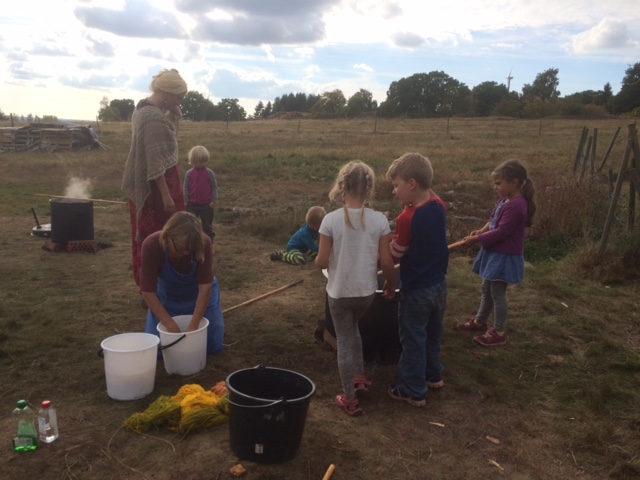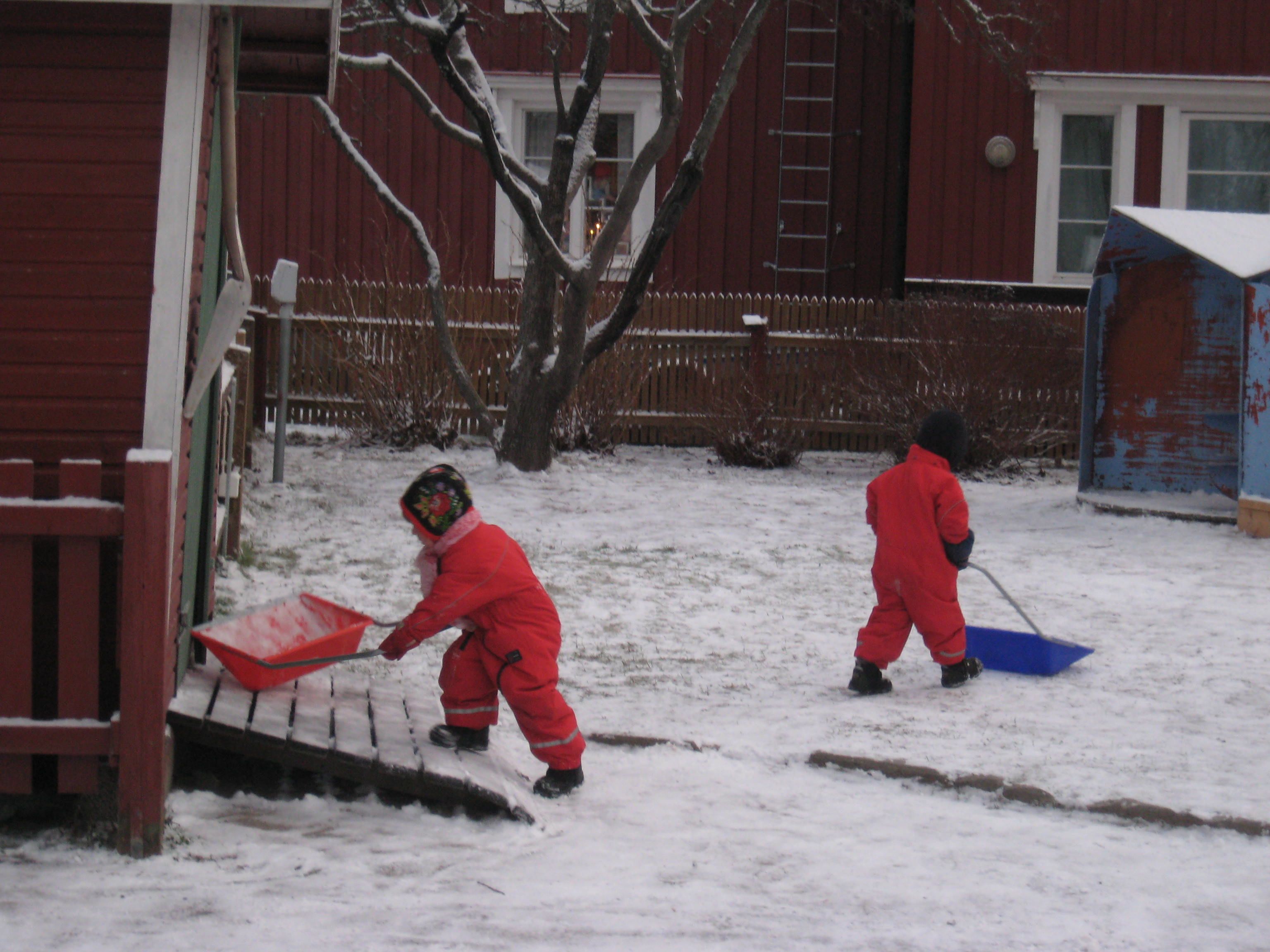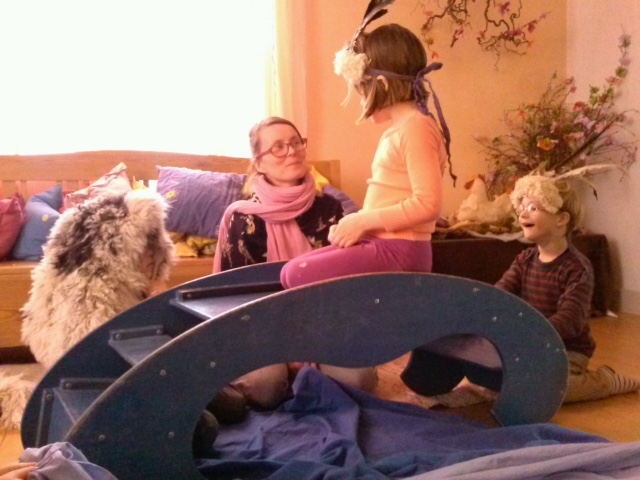In Sweden today there are 78 Waldorf kindergartens. They are organized as private but state-financed kindergartens, which follow the national preschool curriculum – Läroplan för förskolan, Lpfö- 18 (2018) – as well as their own Waldorf curriculum – “En väg till frihet” a path towards freedom (2016).
In our kindergartens we welcome children from 1 to 6 years old. We offer groups for small children 1-3 years old and groups of mixed ages from 3-6 years old, as well as mixed groups for children from 1-6 years old. A well-known everyday rhythm, great care of both the environment and natural materials, as well as the emphasis on each child’s own development within free play, and practical and artistic exercises and experiences are core values. In Sweden there have been Waldorf movements for more or less 65 years. They grew from a great ideal engagement from pedagogues and parents.
Working together. RWS – Riksföreningen Waldorfförskolors Samråd, the national association of Waldorf kindergartens in Sweden, has as its task to strengthen the Waldorf early childhood movement and the anthroposophic impulse for education in Sweden, through framing cooperation and exchange between the kindergartens. The association calls annual meetings and conferences with lectures twice a year, in spring and autumn. At the same time representatives from 20 different districts around Sweden hold a meeting where they discuss what is going on in the different kindergartens around the country.
Burning Issue. A major challenge for Sweden’s Waldorf kindergartens has been to comply with the legal requirements formulated in the Swedish preschool curriculum ”Läroplan för förskolan”, Lpfö-18 (2018).
The political leadership meant that all children in preschool should be given the opportunities to develop digital competence, by having access to digital tools and media in preschool. The starting point for the formulation was the government’s digitization strategy (2017), which would lead to Sweden becoming the best in the world in using the possibilities of digitization.
The introduction of digital tools/media instead had major consequences for children’s developmental opportunities in preschool, and several research studies showed that children’s language development and motor skills were radically impaired. It was clear that this change in relation to children’s development took place after the introduction of requirements for the use of digital tools and media in preschool age.
With this starting point, the government has completely changed its strategy. Currently, it is no longer a requirement from the government to use digital tools in preschool. Instead, preschool education is encouraged to create opportunities where the children can take part in reading aloud and movement, which must be formulated and clarified in the editing of the curriculum.
This of course is a big sigh of relief and incredible joy for Sweden’s Waldorf kindergartens and the RWS Riksföreningen Waldorfförskolors Samråd, who has put a lot of effort and energy in to being granted an exception for Sweden’s Waldorf preschools to be a screen-free option.
Training. WLH – Waldorflärarhögskolan (Waldorf university college) is situated in a beautiful environment in Bromma, Stockholm, close to Solgården, the first funded Waldorf kindergarten in Sweden. So one can really get the feeling of the daily life in a Waldorf kindergarten going on just around the corner. Since the 70’s there have been training courses in Waldorf pedagogy in Sweden.
To get a Waldorf preschool teacher certificate in Sweden you can choose to study full-time for 3 years or part-time (60%) for 5 years. Currently around 280 students are studying at one of the courses or programs at WLH.
Sara De los Santos is a Waldorf kindergarten teacher working in Rudolf Steiner lekskolan in the south of Sweden. She has also worked for SOFIA (an organization of international initiatives on an anthroposophical foundation) for a few years. IASWECE Council member.
Website of the Association of Waldorf schools in Sweden
Website of the Waldorf University College




